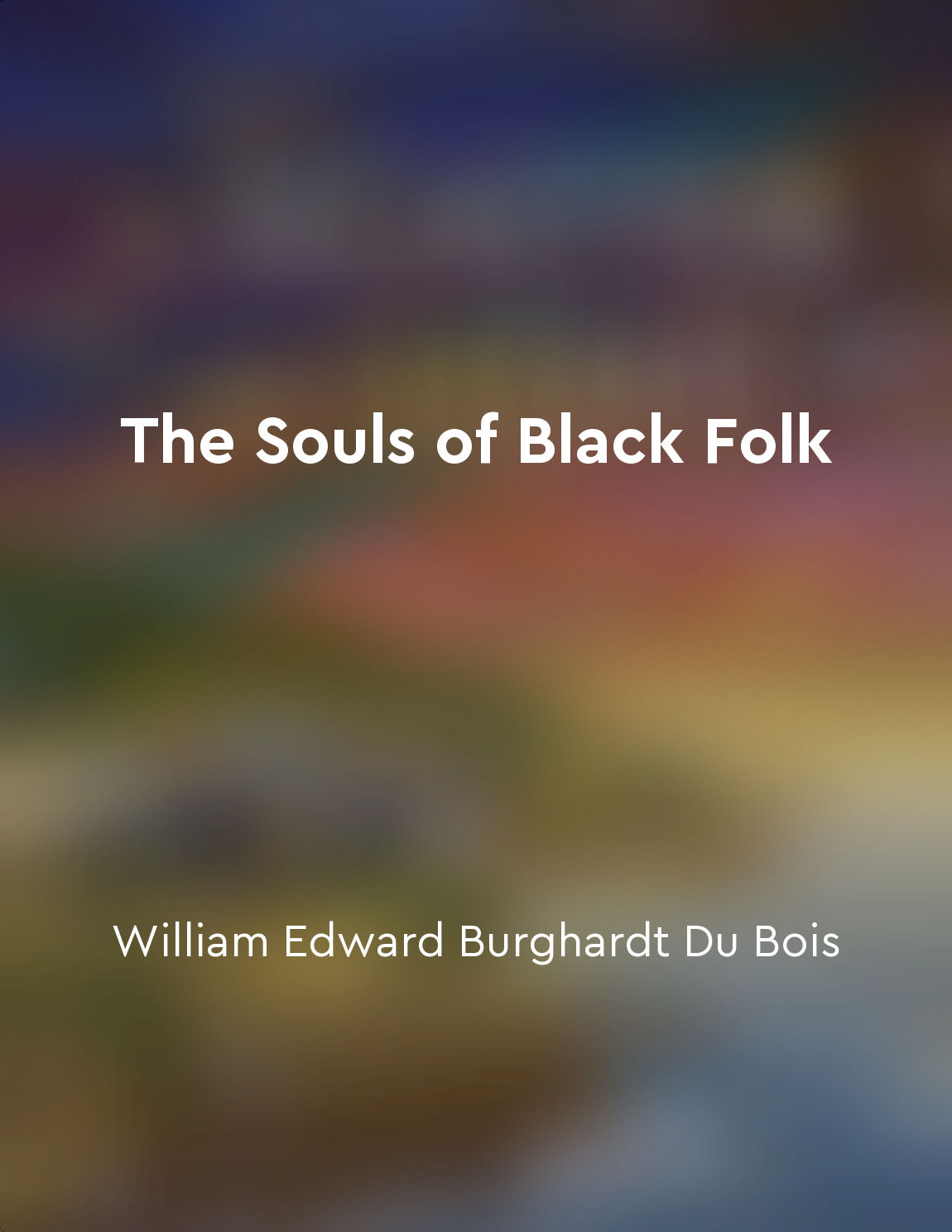Dual identity of African Americans from "summary" of The Souls of Black Folk by William Edward Burghardt Du Bois
The history of the American Negro is the history of this strife — this longing to attain self-conscious manhood, to merge his double self into a better and truer self. In this merging he wishes neither of the older selves to be lost. He does not wish to Africanize America, for America has too much to teach the world and Africa. He wouldn’t bleach his Negro soul in a flood of white Americanism, for he knows that Negro blood has a message for the world. He simply wishes to make it possible for a man to be both a Negro and an American without being cursed and spit upon by his fellows, without having the doors of opportunity closed roughly in his face. The problem of the twentieth century is the problem of the color line. The relation of the darker to the lighter races of men in Asia and Africa, in America and the islands of the sea, especially in the United States, is the great question. It vastly affects the solution of questions of labor and capital, of education and religion, of the self-maintenance of the races, and the final destiny of the races. This problem of the color line is a problem of the twentieth century. To be a poor man is hard, but to be a poor race in a land of dollars is the very bottom of hardships. The American Negro is a sort of seventh son, born with a veil, and gifted with a second-sight in this American world. It is a peculiar sensation, this double-consciousness, this sense of always looking at oneself through the eyes of others, of measuring one’s soul by the tape of a world that looks on in amused contempt and pity. One ever feels his two-ness — an American, a Negro; two souls, two thoughts, two unreconciled strivings; two warring ideals in one dark body, whose dogged strength alone keeps it from being torn asunder. The history of the American Negro is the history of this strife — this longing to attain self-conscious manhood, to merge his double self into a better and truer self. In this merging he wishes neither of the older selves to be lost. He does not wish to Africanize America, for America has too much to teach the world and Africa. He wouldn’t bleach his Negro soul in a flood of white Americanism, for he knows that Negro blood has a message for the world. He simply wishes to make it possible for a man to be both a Negro and an American withoutSimilar Posts

Emancipation and its aftermath
The problem of the twentieth century is the problem of the color line. Since emancipation, the freedmen have worked, believed, ...
Coates calls for a reckoning with America's history of racism
Ta-Nehisi Coates demands that America confront its history of racism head-on. He believes that the country's foundation is buil...

Importance of cultural heritage
Cultural heritage is the essence of a people's identity, the thread that connects the past to the present and shapes the future...

Challenges of being black in a whitedominated society
The problem of the twentieth century is the problem of the color-line, the question of how it feels to be a problem. To be a pr...

Striving for social justice
The problem of the twentieth century is the problem of the color-line. The relation of the darker to the lighter races of men i...
